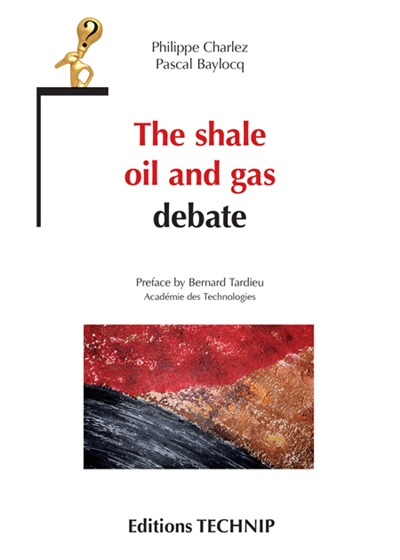en savoir plus

Carte fidélité
Permet à tous ses détenteurs d'obtenir 5% de réduction sur tous les livres lors du retrait en magasin (réduction non cumulable avec les réductions de type étudiant).
Offre également un certain nombre d'avantages auprès de nos partenaires.
Wishlist
Avec les favoris, retrouvez dans un espace les sélections effectuées au fur et à mesure de vos navigations dans le site.
Constituez pour votre usage personnel vos listes de livres en prévisions d'achats futurs et votre sélection d'articles, dossiers, événements, vidéos ou podcasts préférés ou à découvrir plus tard...
Il suffit simplement de cliquer sur "Ajout Favori" sur chaque page qui vous intéresse pour les retrouver ensuite dans votre espace personnel.
Requiert un compte Mollat
Mes Alertes
Requiert un compte Mollat
The shale oil and gas debate
Auteur : Philippe Charlez
Auteur : Pascal Baylocq
en savoir plus
Résumé
Les enjeux politiques, économiques et sociaux de l'exploitation du gaz et du pétrole de schiste aux Etats-Unis, en Europe et en Russie en 20 questions. ©Electre 2025
Lire la Quatrième de couverture
Réduire la Quatrième de couverture
The shale oil and gas debate
In the space of six years, the United States have reduced their dependence on oil by a third and have become almost self-sufficient in terms of gas supply. This « shale oil and gas revolution », a sudden and unexpected earthquake in the energy world, enabled the US to become one of the most competitive countries in the world. Exporting this revolution could double the world gas reserves and boost those of oil by 20%. Outside North America, the main reservoirs are thought to be in China, Russia and Argentina.
In the medium term, this new state of affairs will have major geopolitical consequences, fundamentally altering oil, gas and coal imports. While US imports from the Persian Gulf rapidly dwindle, those of China and India will significantly increase and as the United States becomes a gas exporter, Russia will have to find alternative markets.
Although it is not ranked in the « top 10 », Europe is thought to have vast resources. Yet for the realization of a major European project, a number of geological (are European source rocks as high quality as their US counterparts ?), economic (will Europe be able to develop its resources at an acceptable cost ?) and societal barriers will have to be overcome. On a densely-populated, urban continent, hydraulic fracturing, water supply, microseisms and surface impact represent a battery of « threats » for the stakeholders. Changing this perception will require both pedagogy and transparency regarding the local communities. This has to be a win / win situation and not a case of give and take.
In this work, written in the form of 20 questions for non-specialists, Philippe Charlez and Pascal Baylocq give you the answers to « everything you always wanted to know about shale oil and gas but never dared to ask. »
Fiche Technique
Paru le : 12/05/2015
Thématique : Economie générale
Auteur(s) : Auteur : Philippe Charlez Auteur : Pascal Baylocq
Éditeur(s) :
Technip
Collection(s) : Non précisé.
Contributeur(s) : Préfacier : Bernard Tardieu - Traducteur : Cathy Brewerton
Série(s) : Non précisé.
ISBN : 978-2-7108-1153-4
EAN13 : 9782710811534
Reliure : Broché
Pages : 220
Hauteur: 21.0 cm / Largeur 15.0 cm
Épaisseur: 1.2 cm
Poids: 400 g
